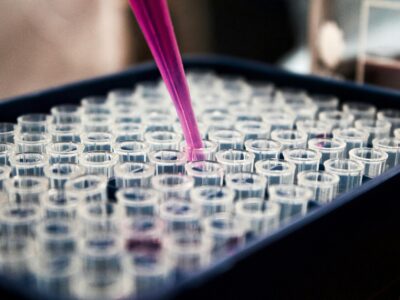The human brain is an incredibly complex organ, with many chemicals playing vital roles in regulating mood, motivation, and behavior. Among these, serotonin and dopamine stand out as two of the most important neurotransmitters involved in mental health and addiction.
If you or a loved one are seeking addiction treatment in Biloxi or elsewhere in Mississippi, understanding the difference between serotonin vs dopamine can shed light on how addiction affects the brain and why targeted treatments matter.
What Are Neurotransmitters?
Neurotransmitters are chemical messengers that transmit signals between nerve cells (neurons) in the brain. They influence everything from mood and emotions to movement and reward processing.
Two of the most well-studied neurotransmitters are serotonin and dopamine. Although they often work together, they have distinct roles and effects.
What Is Serotonin?
Serotonin is often called the “feel-good” neurotransmitter because it contributes to feelings of well-being and happiness. It helps regulate mood, appetite, sleep, memory, and learning.
Low serotonin levels are commonly associated with depression, anxiety, and other mood disorders. Many antidepressant medications, such as selective serotonin reuptake inhibitors (SSRIs), work by increasing serotonin availability in the brain.
What Is Dopamine?
Dopamine is sometimes called the “reward” neurotransmitter. It plays a central role in motivation, pleasure, and reinforcement learning — essentially how we experience rewards and seek out enjoyable activities.
Dopamine is heavily involved in the brain’s reward circuitry, which explains why it plays a major role in addiction. Drugs of abuse often cause a surge in dopamine levels, leading to intense feelings of pleasure and reinforcing drug-taking behavior.
Serotonin vs Dopamine: Key Differences
| Aspect | Serotonin | Dopamine |
| Primary Function | Regulates mood, sleep, appetite | Drives reward, motivation, pleasure |
| Related Disorders | Depression, anxiety, OCD | Addiction, Parkinson’s, schizophrenia |
| Common Medications | SSRIs, tricyclic antidepressants | Dopamine agonists, antipsychotics |
| Brain Pathways | Raphe nuclei in the brainstem | Ventral tegmental area (VTA), nucleus accumbens |
| Role in Addiction | Mood regulation affects cravings | Directly involved in reinforcement of addictive behaviors |
Why Understanding These Differences Matters in Mississippi Addiction Treatment
Addiction treatment centers in Biloxi and across Mississippi increasingly recognize the importance of targeting these neurotransmitter systems. Successful recovery depends on addressing the chemical imbalances that fuel both addiction and co-occurring mental health disorders.
For example, medications that modulate serotonin levels, like SSRIs, may help manage depression and anxiety symptoms in recovery. Meanwhile, treatments aimed at dopamine regulation can reduce cravings and prevent relapse.
Trusted Science: Learn More About Serotonin and Dopamine
For a deeper understanding of these brain chemicals, the National Institute on Drug Abuse (NIDA) offers comprehensive resources on how drugs affect neurotransmitters that explain the role of serotonin and dopamine in addiction.
How Mississippi Drug and Alcohol Treatment Center Supports Brain Health
At MSDATC in Biloxi, we provide evidence-based treatments tailored to the unique brain chemistry of each individual. This includes medication management, counseling, and holistic therapies that support serotonin and dopamine balance.
By addressing both the neurochemical and behavioral aspects of addiction, we help clients build long-lasting recovery.
Ready to Take the Next Step Toward Recovery in Mississippi?
Understanding how serotonin vs dopamine influence your brain is the first step toward healing. If you or a loved one are struggling with addiction or co-occurring mental health conditions in Biloxi or anywhere in Mississippi, reach out now to Mississippi Drug and Alcohol Treatment Center.
Our compassionate team is here to guide you through personalized treatment plans focused on restoring balance — in both brain and life.


 Tricyclic Antidepressants in Mississippi: Their Role in Modern Recovery
Tricyclic Antidepressants in Mississippi: Their Role in Modern Recovery